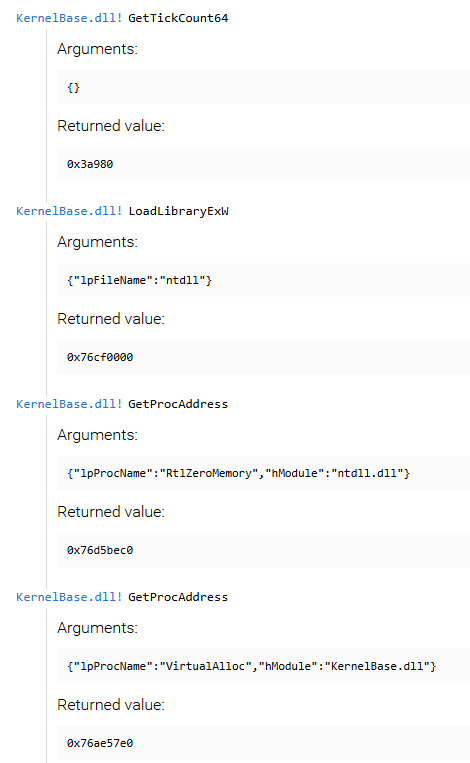AV Evasion: Anti-debug tricks
Reducing AV detections
One of the most common techniques malware authors use to create FUD (Fully Undetectable) malware is anti-debugging.
Practically every anti-virus solution opens the target executable with some form of debugging or inspection enabled— Sometimes obvious, sometimes very stealthy. Here’s an example of function hooking in VirusTotal Jujubox:

What you have to know
Surprisingly: it’s often the least suspicious reactions (like a program immediately exiting without modifying anything), that trigger antivirus detection the most.
This is why instead of simply terminating when a debugger is detected, it’s better to reroute execution and behave like an entirely different (but still “normal-looking”) program.
For example: instead of exiting the program when a debugger is detected:
if (IsDebuggerPresent()) {
// Debugger found
ExitProcess();
return 1;
}
Do something like:
if (IsDebuggerPresent()) {
// Debugger found
printf("%s", "Welcome to my Fibonacci number printer!");
unsigned long long sum = 0;
unsigned long long num1 = 0;
unsigned long long num2 = 1;
unsigned long long upto;
printf("Generate fibonacci numbers up to:");
scanf("%d", upto);
printf("%d\n", num1);
printf("%d\n", num2);
while (sum < upto) {
sum = num1 + num2;
printf("%d\n", sum);
num1 = num2;
num2 = sum;
}
return 1;
}
// Nefarious code goes here!
route execution to an entirely different “legit” routine that acts as a random number generator, for example, and only then close the program.
Anti-debugging methods
A classic “one-liner” anti-debug trick I used in my crackme looks like this:
if (*(BYTE*)(__readgsqword(0x60) + 2)) {
// Debugger detected
The logic behind this line is simple.
__readgsqword(0x60) // <-- gets the Process Environment Block address
+ 2 // <-- 0x02 bytes offset from PEB contains the BeingDebugged field
👉 BeingDebugged is a boolean (1 byte) that tells whether a debugger is attached to the process!
If BeingDebugged == 1, then you are being debugged (proabably by x64dbg)
If BeingDebugged == 0, then no debugger attached.
(*(BYTE*) // A dereference that reads the BeingDebugged boolean

Leave a comment